The Ultimate Guide to the Black Jackal - African Safari Animal
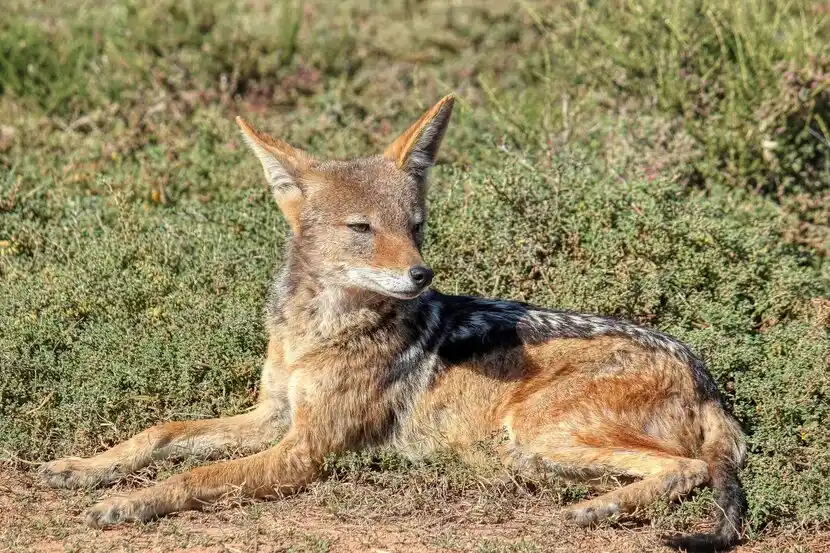
Are you intrigued by the majestic black jackal? Did you know that these African safari animals are related to wolves and coyotes, with a more slender build than their larger cousins?
Here is a comprehensive guide on black backed jackals, from what they look like to what they eat.
Contact Us to Book Your Safari with Us – MasaiMaraSafari.in
We are the leading tour operator in Kenya & we promise to show you this country better than anyone else. We provide customized safaris to these East African countries for all Indian travelers.
You can reach us at james@ajkenyasafaris.com or safarioffers@ajkenyasafaris.com to book your trip. We are also available through WhatsApp or phone at +254-748-258-880.
Our Most Booked Kenya Safari Packages and Tours
| The Best Kenya Masai Mara Safari Packages | Detailed Itinerary | Price Per Person Sharing |
| 3-Day African Safari in Kenya Masai Mara | View the Itinerary | From USD 880 |
| 3-Day Masai Mara Budget Safari | View the Itinerary | From USD 880 |
| 4-Day Ashnil Mara Camp Safari | View the Itinerary | From USD 1190 |
| 4-Day Lake Nakuru & Masai Mara Safari | View the Itinerary | From USD 1180 |
| 4-Day Mara Serena Safari Lodge Safari | View the Itinerary | From USD 1262 |
| 4-Day Masai Mara Flying Safari | View the Itinerary | From USD 1450 |
| 4-Day Masai Mara Group Safari | View the Itinerary | From USD 750 |
| 4-Day Masai Mara Migration Safari | View the Itinerary | From USD 1430 |
| 5-Day Naivasha & Masai Mara Group Safari | View the Itinerary | From USD 854 |
| 6-Day Amboseli, L. Naivasha, & Masai Mara Safari | View the Itinerary | From USD 1764 |
| 6-Day Amboseli, L. Nakuru, & Masai Mara Group Safari | View the Itinerary | From USD 1186 |
| 6-Day Hell’s Gate, L. Nakuru, & Masai Mara Safari | View the Itinerary | From USD 1788 |
| 6-Day L. Nakuru, Hell’s Gate, & Masai Mara Group Safari | View the Itinerary | From USD 1123 |
| 6-Day Nairobi & Masai Mara Family Safari | View the Itinerary | Child From USD 628 Adult From USD 2000 |
| 6-Day Nairobi, L. Nakuru, & Masai Mara Safari | View the Itinerary | From USD 1795 |
| 7-Day Amboseli, Naivasha, & Masai Mara Group Safari | View the Itinerary | From USD 1130 |
| 13-Day Kenya Wildlife & Beach Safari | View the Itinerary | From USD 5258 |
What is a Black Jackal?
A black backed jackal is one of the species or members of the canid family found in parts of Africa, Arabia & Indian subcontinent. This species can be found living in Eastern and southern Africa in countries such as Kenya and South Africa.
They have a black coat that ends at the shoulder with a white stripe from the tail to the back of the body. The black backed jackal is usually found in wooded grasslands as well as riverine areas & they live a solitary life. You can find black backed jackal in Masai Mara National Reserve, Serengeti National Park, & the Ngorongoro Crater in Kenya & Tanzania.
- Scientific Name: Canis mesomelas
- Jackals Pronunciation: jak-uhl
- Life Span: 7 to 10 years
- Size: 28 to 33 inches
- Weight: 9 to 11 kg
- Gestation: 60 to 70 days
- Predators: Lions, Leopards, Hyenas and Eagles
- Diet: Small mammals, reptiles & birds.
- Habitant: Grasslands, savannahs, & woodlands.
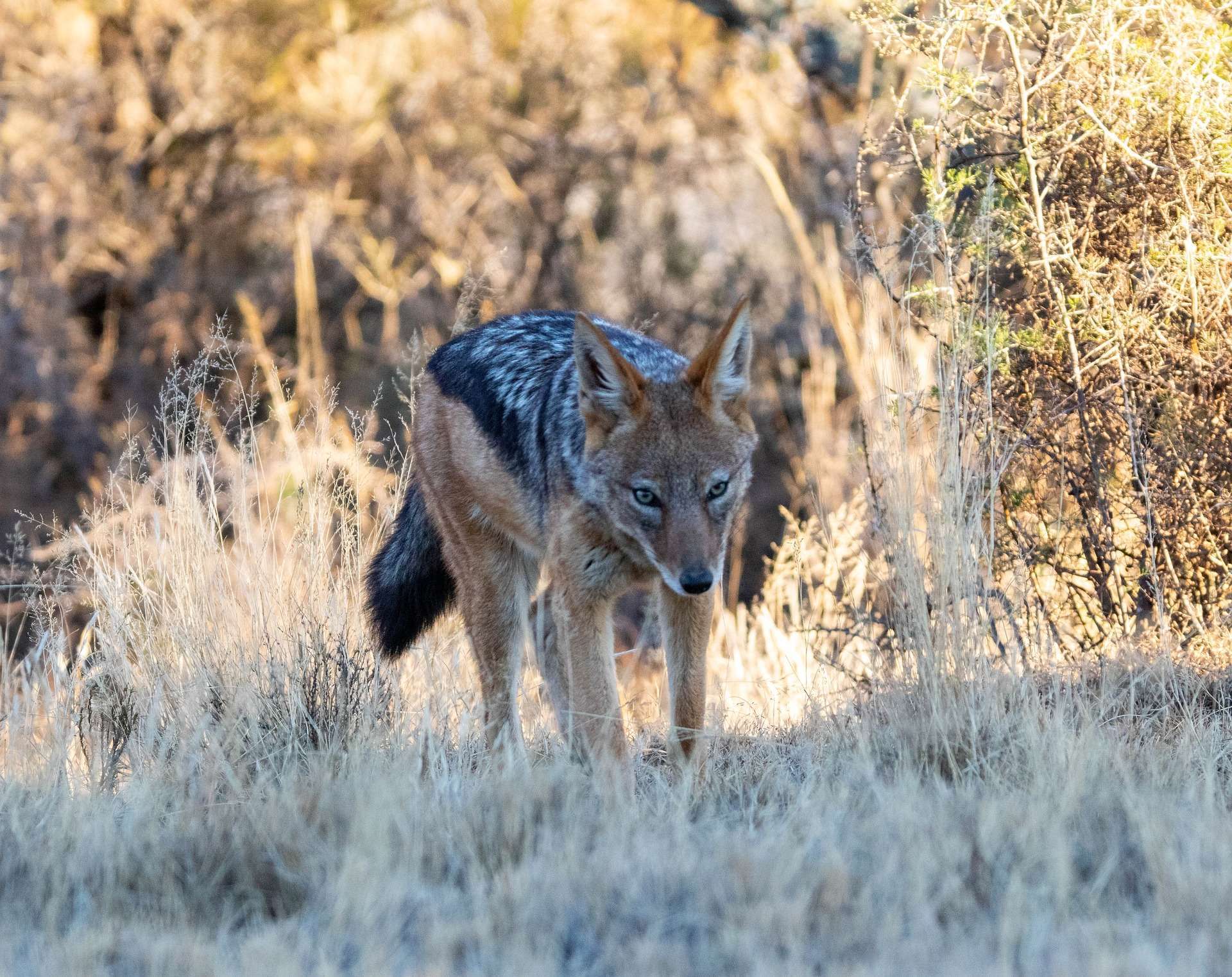
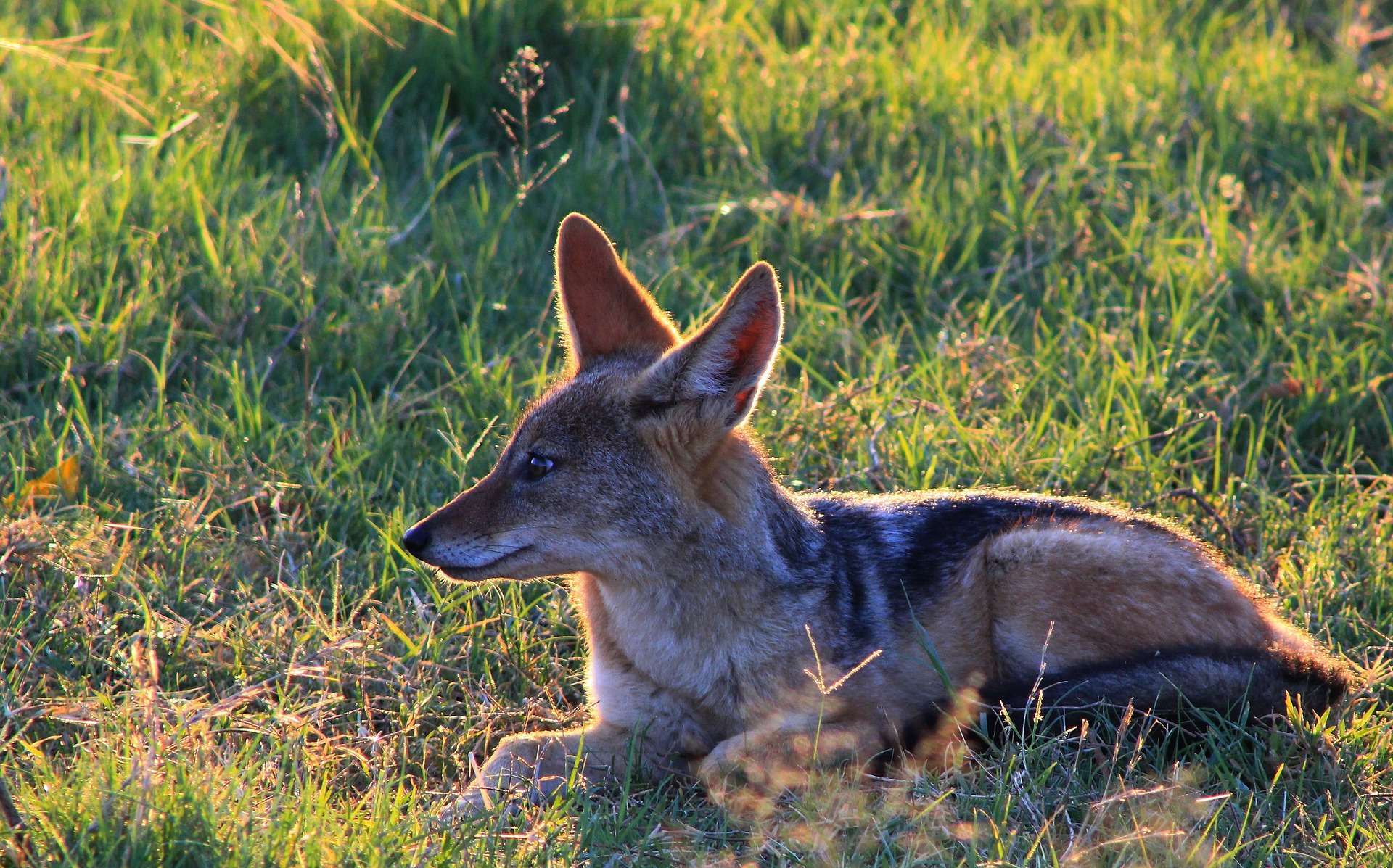
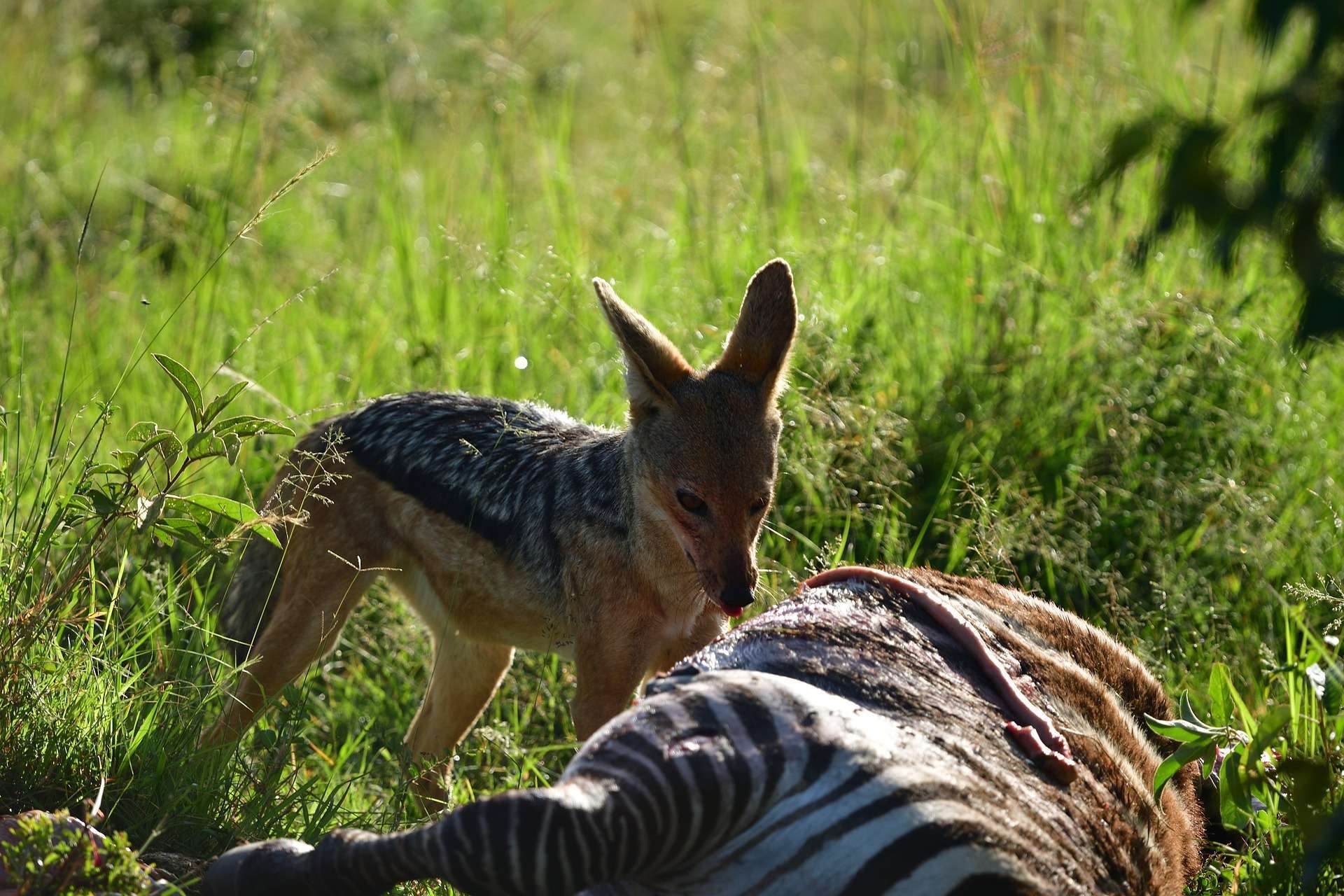
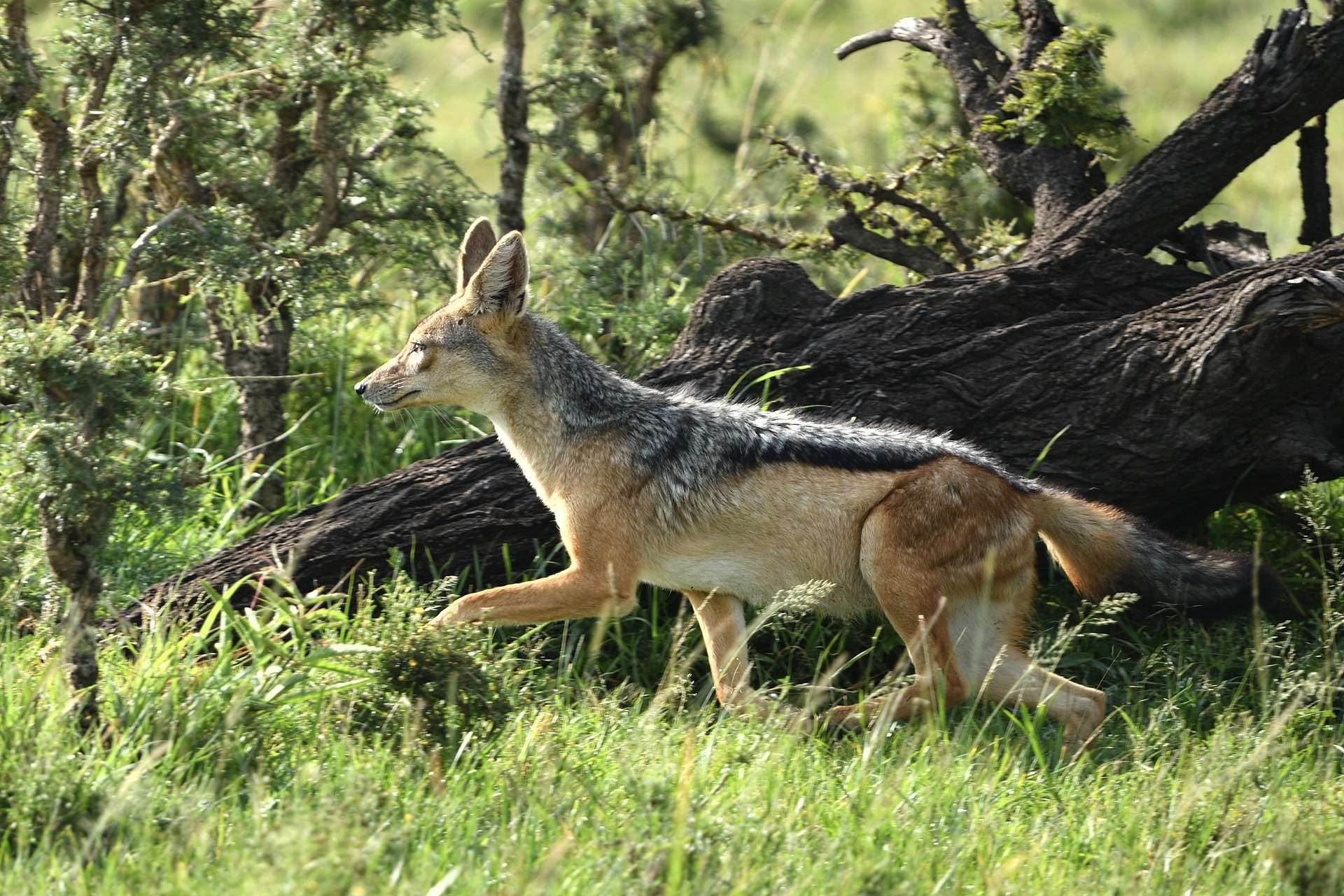
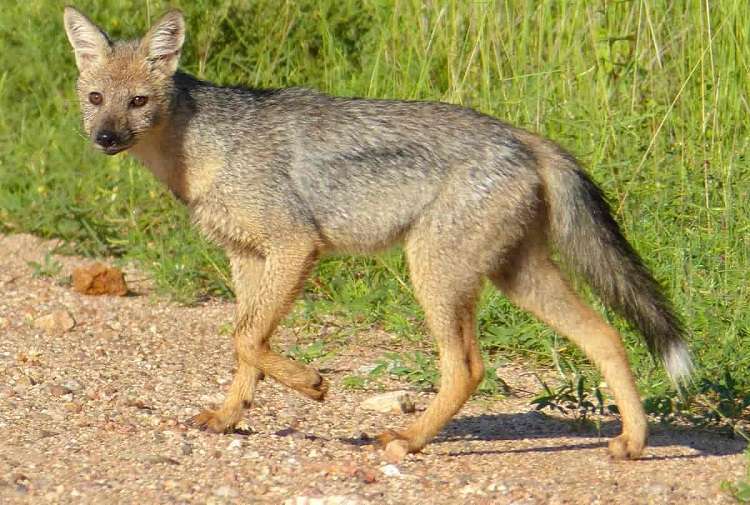
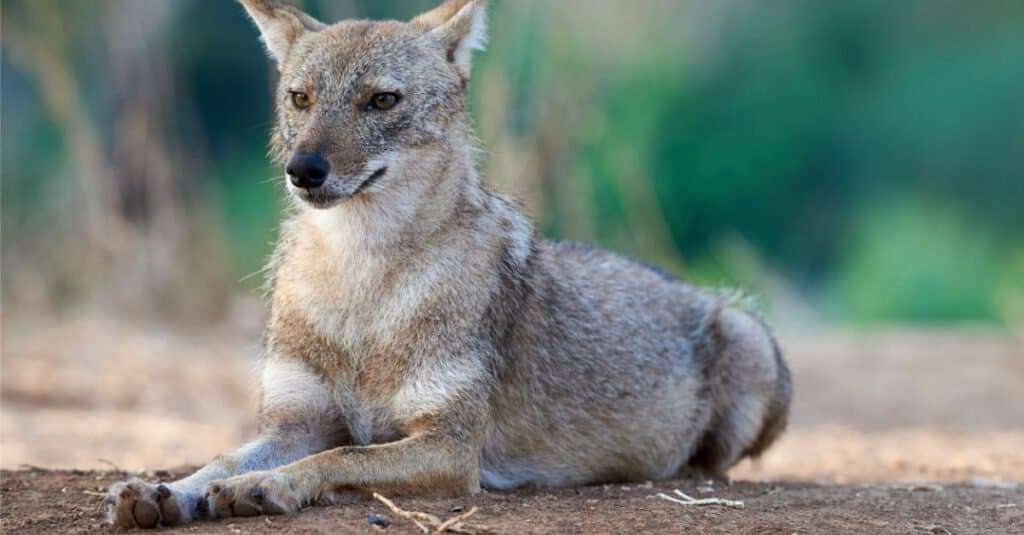
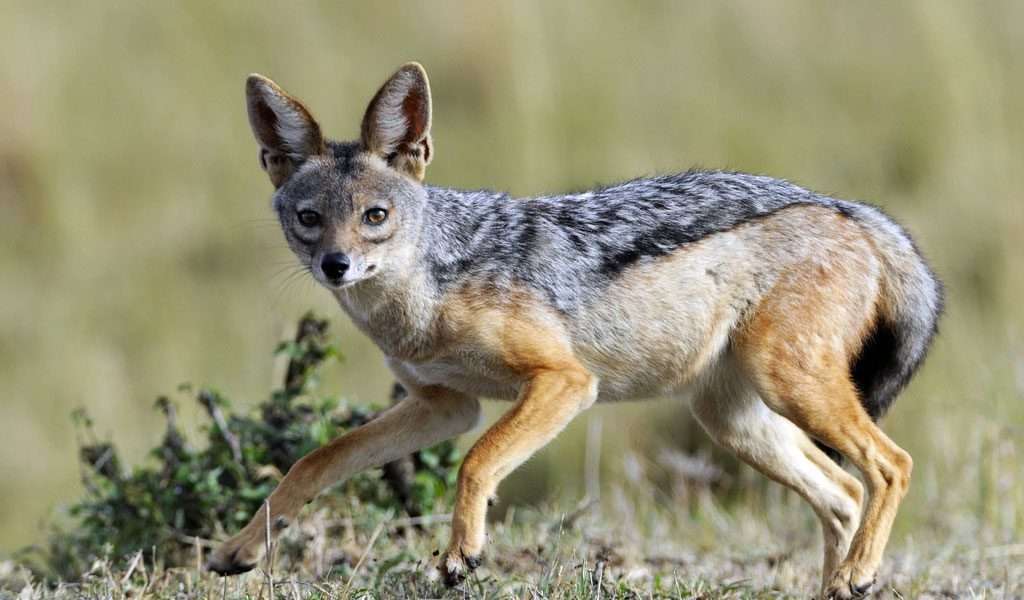
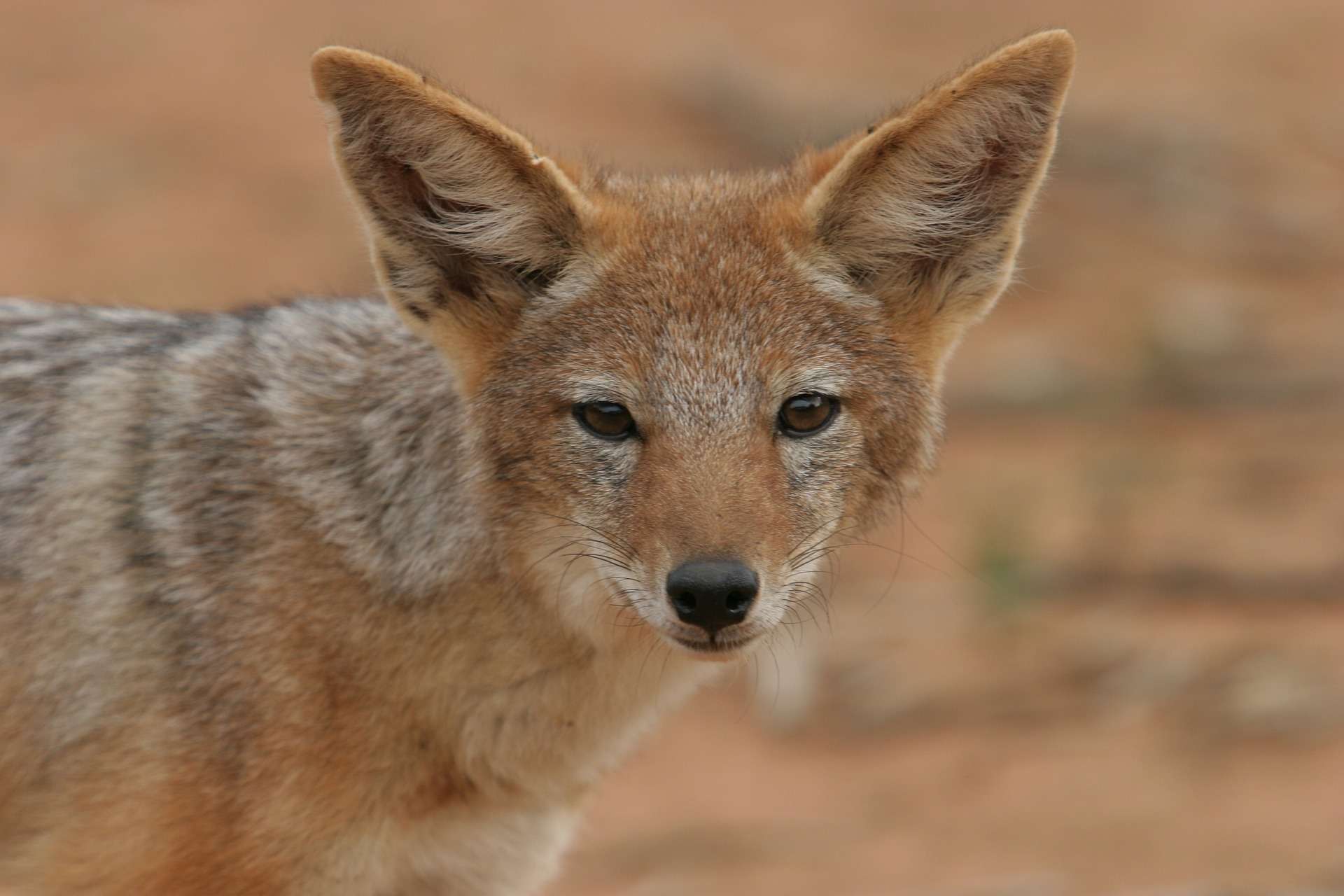
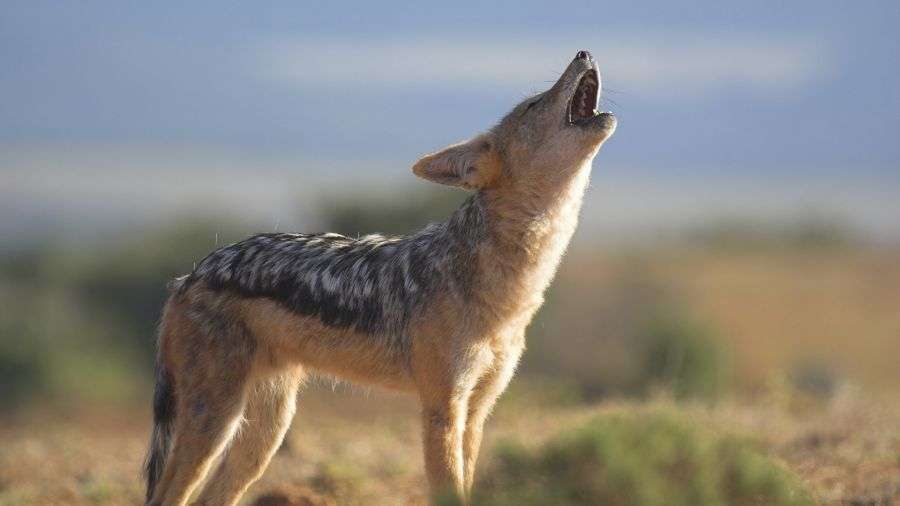
FAQs – Learn More About the Jackals
This FAQ covers the basics of jackals and should provide some helpful background information on this species. If you’re looking to learn more about jackals, be sure to do further research! Good luck!
1. What are black backed Jackals?
The black backed jackals are a species of mammals related to wolves and coyotes that inhabit many parts of Africa, Asia and the Middle East.
Black backed jackals have fur on their back, dark brown or yellowish fur on their faces & legs, are slender, and a long bushy tail. They’re social animals living in packs of up to 10 individuals, and are very vocal with their distinctive howling call.
2. What is the jackals’ pronunciation?
The jackals’ scientific name is Canis mesomelas, & its pronunciation is “KAN-iss MEH-soh-MEE-lahss”.
3. Why jackal have black backs?
The black backed jackals have a black back to help them blend in with their natural environment. The dark color allows them to camouflage themselves while they are hunting or avoiding predators.
4. What does the black-backed jackal eat?
The black-backed jackal eats a variety of food, including small mammals, birds and reptiles as well as some vegetation. They are also known to scavenge from carcasses.
5. What are the four types of jackals?
The species of jackals are the black-backed jackal, the golden jackal, the side-striped jackal & the silver-backed jackal. The black-backed jackal is the most common, & it inhabits parts of Africa, Asia and the Middle East.
The golden jackal is found in parts of Europe, Asia and Africa. The side-striped jackals are found in South Africa & the silver-backed jackal is found in Ethiopia, Somalia and northern Kenya.
6. What is the difference between a black-backed jackal and a silverback jackal?
The main difference between a black-backed jackal and a silverback jackal is their size. The black-backed jackal is smaller than the silverback jackal, which is larger and more robust. The black-backed jackal also has a black back & sides, while the silverback jackal has a silver or grey back.
7. What do silverback jackals eat?
Silverback jackals mainly feed on small mammals, birds and reptiles but they are also scavengers and may eat carrion as well. They may also consume plants, fruits, and insects.
8. What does the side striped jackal eat?
Mainly dwelling in South Africa and countries in southern Africa, Asia, and other parts, the side stripped jackal eats a variety of items including small rodents, birds, reptiles as well as some vegetation.
9. Do black jackals exist?
Yes, black jackals exist and are a species of mammals related to wolves and coyotes. They inhabit many parts of Africa, Asia and the Middle East, & have black fur on their back as well as dark brown or yellowish fur on their faces and legs.
10. Do black backed jackals mate for life?
No, black backed jackals do not mate for life. They typically stay monogamous in pairs during the mating season (one or two seasons), but will usually find new mates the following year.
11. Do the jackals yell?
The species of black backed jackals are known to be very vocal and can make loud howling calls. Other synonyms yelled include shouted, roared, bellowed, shrieked, screamed and cried out.
12. Are jackals aggressive?
The jackal (side stripped jackal or even the other three species) can be aggressive towards their prey or other animals that they encounter. They are also known to scavenge from carcasses and will sometimes fight with other jackal packs over food.
13. Are jackals dangerous?
Jackals might dangerous if provoked or threatened. It is best to keep a safe distance away from them and to not approach them.
14. Do jackal eat snakes?
Yes, jackals have been known to eat snakes. They are opportunistic feeders, so they will take advantage of whatever food is available.
15. Do jackals eat meat?
Yes, jackals are carnivorous and will eat meat in addition to other small creatures and plants. They typically feed on smaller mammals, birds, reptiles and insects as well as scavenging from carrion.
16. Do jackals hunt?
Jackals are predatory animals that hunt for their food. They mainly prey upon small mammals and birds, but also scavenge for carrion and other foods. They are excellent hunters and can cover large distances in search of food. This species hunt in the morning or late afternoon on its own or in pairs.
17. Do jackals eat fruits?
Yes, jackals will eat fruit when it is available. They have been known to consume various types of vegetation as well as small insects and invertebrates.
18. Do jackals eat foxes?
Jackals have been known to hunt and eat foxes. They generally prefer smaller prey, but will consume larger animals such as foxes if given the opportunity.
19. Does jackal eat fish?
Jackals have been known to eat fish in addition to other small creatures and vegetation. They are opportunistic feeders and will take advantage of whatever food is available.
20. Do jackals eat cats?
Yes, jackals have been known to hunt and consume cats if given the opportunity. They are primarily opportunistic feeders so they will take advantage of whatever food is available.
21. Do jackals live in groups?
Jackals typically live in packs that range from two to twenty individuals. The pack is usually led by the dominant male and female, who are typically the parents of most of the pack members.
22. Do jackals attack humans?
Black backed jackals are not typically known to attack humans but they may become aggressive if threatened or provoked. It is best to keep a safe distance away from them and avoid any potential conflict.
23. What is the female jackal called?
Thera are male and female jackals. The female jackal is referred to as a she-jackal or vixen. She leads the pack along with the dominant male and typically gives birth to most of the pack’s offspring.
24. Do jackal live in the den?
Jackals typically live in a den and will construct them in burrows or cavities. The den is used to raise their own babies as well as a safe place for the pack to rest and sleep.
25. Where can I find jackals in Africa?
There are four species of jackal found in the continent of Africa: the black-backed jackal, side-striped jackal, golden jackal & silverback jackal.
These animals are widely distributed across the continent and may be found in grasslands, savannas, woodlands and deserts. They’re more than happy to live in areas with abundant prey.
For the black jackals, they are two members, with one living in southern tip of South Africa, Zimbabwe, Botswana, and Namibia. The others live on the eastern coastline like Ethiopia, Somalia, and Kenya. The two are separated by Olduvai Gorge in Tanzania.






